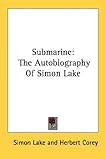When I wrote Black Flag, Black Ship, I wrote passionately and as realistically as possible. My goal was to write a Christian historical fantasy novel set in the 1700s during the age of sail, just before Queen Anne's War.
More than anything I wanted a exotic location where miraculous happenings of Cecil B. DeMille proportions could unfold combating the scourges of lawlessness and slavery. I wanted to pit sinister technologies wielded by mercilessness pirates against resourceful men and women of faith, who by the way do keep their powder dry and their cutlasses sharpened.
By the time I finished Black Flag, Black Ship, I knew I had a great story, but I still had to explain it in ten words or less to prospective agents and publishers. That meant I had to come up with some kind of genre classification. So how do you classify a story filled with angels and devils, infernal devices, piracy, espionage, sea battles, underwater happenings, and people encountering the indomitable agape love of God?
I would unabashedly call it a whacking good story, but alas, that is not an officially recognized genre. I came up with numerous genres and ad-hock genres: Christian suspense, Christian supernatural sea stories, Christian SF/ fantasy and even a hopeful Christian historical fantasy. I finally settled on Christian speculative fiction, which embraces the speculative fiction genres of fantasy, science fiction, and horror, provided the stories are told from a Christian world view.
While Black Flag, Black Ship certainly does fit the Christian speculative fiction genre, it's still a mouthful to say. So, I put the thought on a mental back burner to simmer and today I had an aha moment.
If steampunk novels are novels filled with all sorts of amazing technologies like airships, babbage engines and submarines, then could a novel set in the age of sail filled with all sorts of amazing pre-steam technologies and supernatural happenings be called sailpunk?
The problem is no one is really sure that there is such a thing as sailpunk. Some say that it could be a story with advanced technology set between the Renaissance and the steam era. Others say it is a story with advanced nautical technology set in the distant future when there are no more hydrocarbons or on a distant water planet.
The "punk" genres such as steampunk and cyberpunk usually feature darker stories with broken societies called dystopias where the little guys get crushed by the powerful. The purpose of a dystopian novel is to force folks to look at the negative trends in their own societies by projecting undesirable transformations of societies. Still, it is not very conducive to thinking happy thoughts.
What I propose to do in writing Christian sailpunk and Christian steampunk novels is to say that life is dark and hopeless without Jesus and that with Him all things are possible, including the greatest miracle of all, personal transformation.
Subscribe to:
Post Comments (Atom)














No comments:
Post a Comment